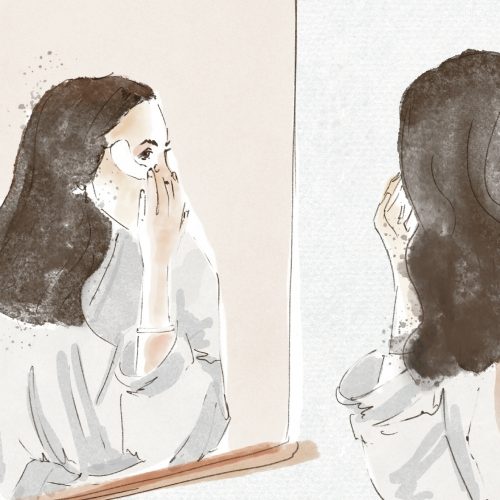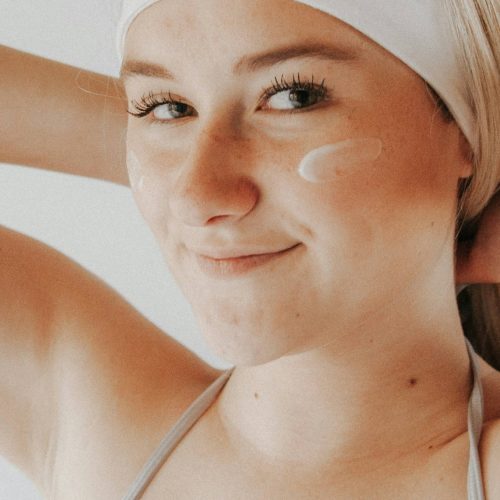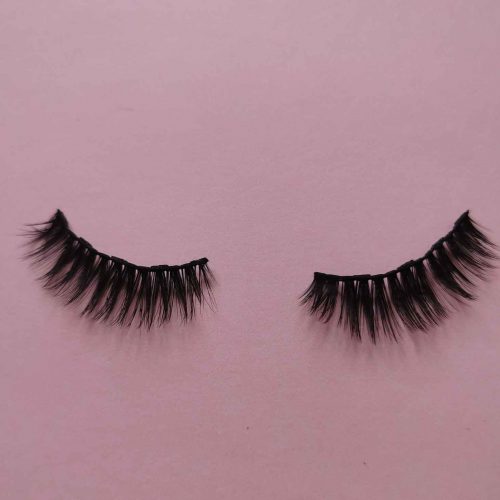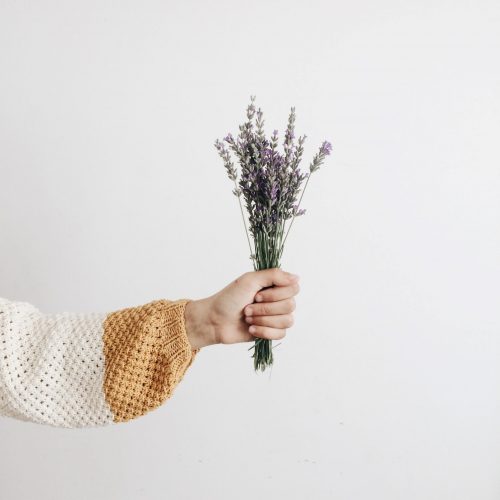The Sustainable Beauty Packaging Dilemma
Despite consumers expressing great interest and preference towards compostable and biodegradable product packaging, disposal labels for these types of materials are causing so much confusion that most of them still end up in landfills. And herein lies the problem with sustainable packaging: even though consumers want to support it, they can’t and they won’t if they don’t have enough information to do so.
To combat this, many big players in the beauty industry are making public commitments to develop and employ more environmentally-friendly packaging in the near future. For example, Unilever (owner of Dove, Simple, St. Ives and more) announced that it intends to reduce its use of virgin plastic by 50%, use at least 25% recycled plastic in its packaging and make all its plastic packaging reusable, recyclable or compostable, all by 2025. And while publicising these plans helps draw attention to the current problem, the true trailblazers in the sustainable packaging space are the indie brands that are already implementing better alternatives and giving their customers the tools to make their contribution—proper disposal—count. Here are five indie beauty brands that are nailing sustainable packaging while improving consumer awareness of the issue at the same time, and visit here for a guide to essentials for a zero-waste bathroom.
UNWRAPPED LIFE
Unwrapped Life is proud to advertise a completely plastic-free haircare experience on the front page of their website. The brand carries a variety of solid shampoo, conditioner and body soap bars that come in minimal packaging. Individual bars are wrapped in kraft paper bags, which the website FAQ explains can be recycled or composted if clean, or just composted if any product residue has rubbed onto them. Their aluminum travel tins are made to last, but if you check the product page, you’ll see that at the end of their lives they’re also able to be recycled. When there are an estimated 552 million shampoo bottles ending up in landfills annually—and that’s only counting the US—this plastic-free haircare option is a great choice.
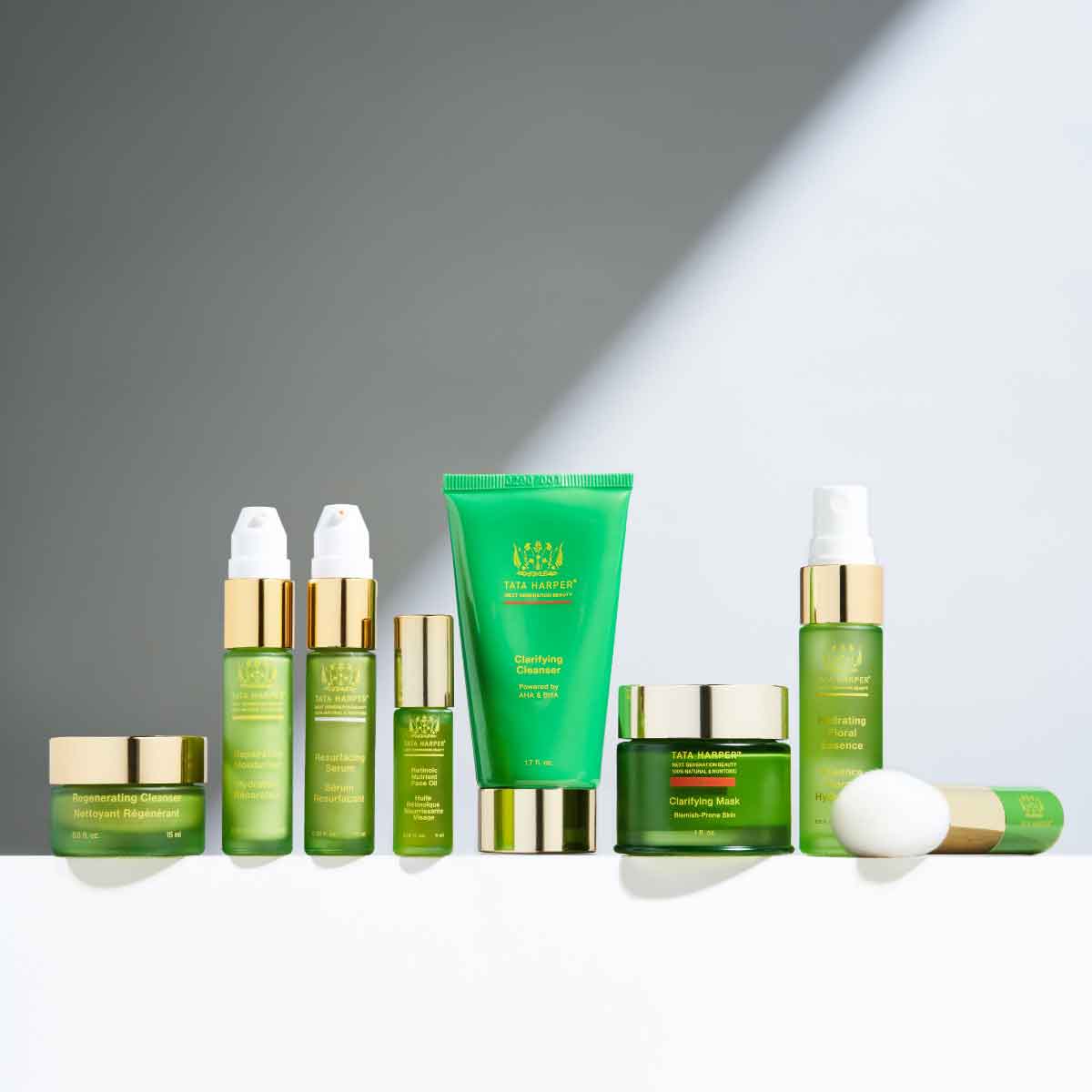
© Tata Harper
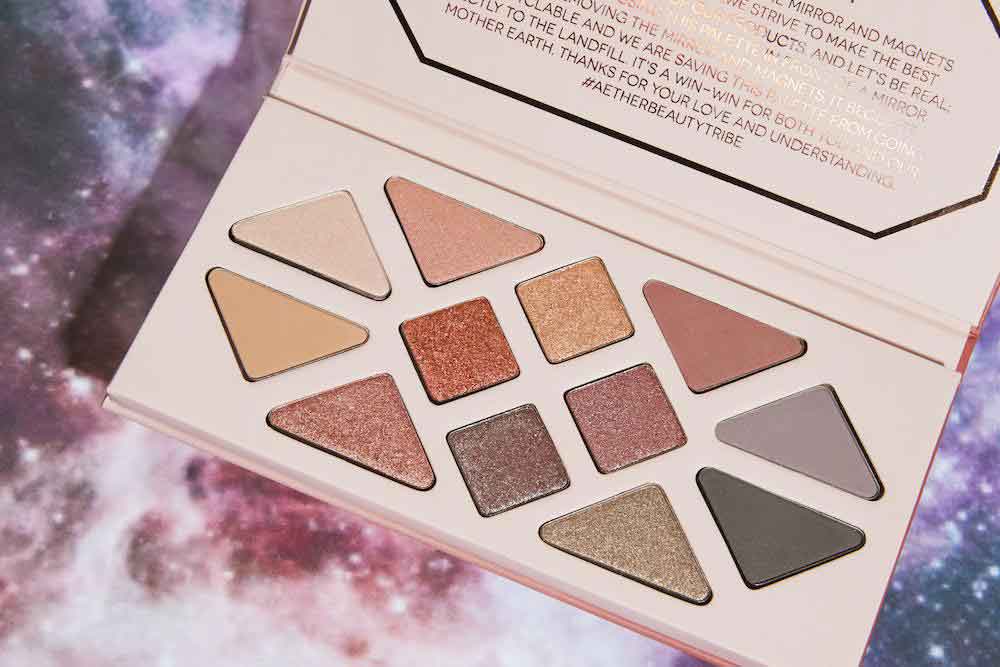
© Aether Beauty
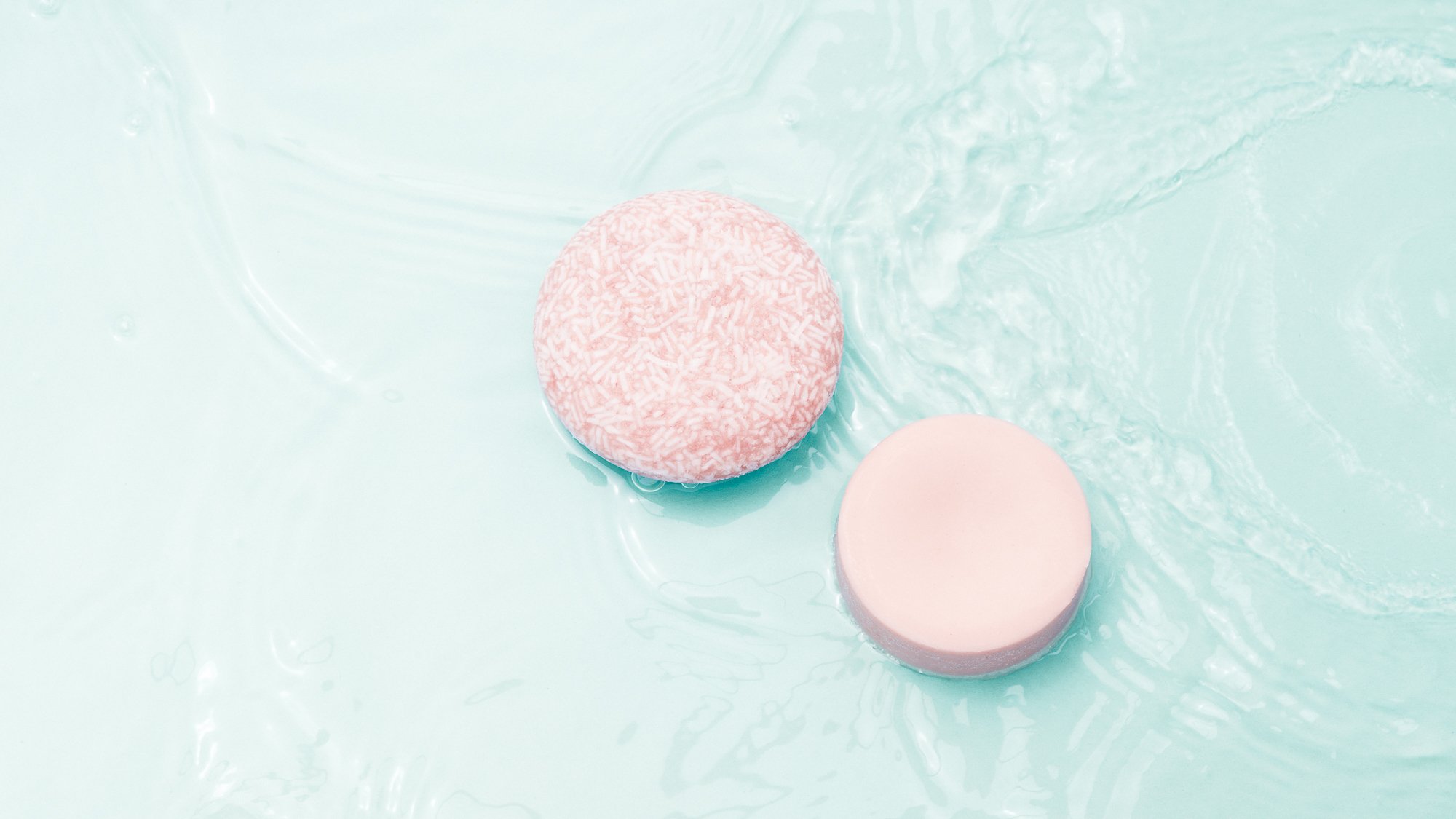
© Unwrapped Life
TATA HARPER
Luxury skincare brand Tata Harper has been a pioneer in the organic and natural skincare industry for over a decade now. Although the focus of the brand was primarily on high quality natural ingredients at first, it has since grown to encompass eco-friendly packaging considerations as well. Although the website isn’t the most forthcoming, a quick search on the brand’s blog uncovers a lot more detail about their packaging. It explains that the majority of their products come in recyclable glass containers, while a few come in 100% recyclable bio-based sugarcane plastic tubes. Secondary packaging is made with certified paper from sustainably managed forests and are printed with biodegradable soy ink. The only downside is that pumps and caps are not recyclable at this time, but the brand is always looking to integrate new eco-friendly solutions down the line.
AETHER BEAUTY
Aether Beauty launched a highly sought after and now sold-out lip creme in May 2020 that was actually housed in the first 100% recyclable and 100% recycled plastic lip component in the prestige beauty industry. And, while most other cheek and eye palettes on the market come with mirrors and magnets inside, Aether Beauty’s sustainability page explains that they chose not to include these components in their palettes because they’re not recyclable and they contribute to palettes going to landfills rather than recycling plants. All secondary Aether Beauty packaging is made with FSC certified paper and printed with water-based soy inks. To top it all off, the brand provides clear recycling instructions on all of their product pages, ensuring that customers are able to dispose of things properly when the time comes.
AXIOLOGY
Axiology set out to “make the most ethical lipstick on the planet” back in 2014, and they just may have succeeded! In particular, their Balmies—3-in-1 crayons that can be used on eyes, lips and cheeks—are packaged without a tube but still in a convenient bullet shape, which is a first in the industry. They’re wrapped in recyclable paper and tuck into a recyclable carrying case that is itself made from recycled waste. Axiology does a great job of informing its customers about its packaging, explaining its origins and giving disposal instructions right on every product page.
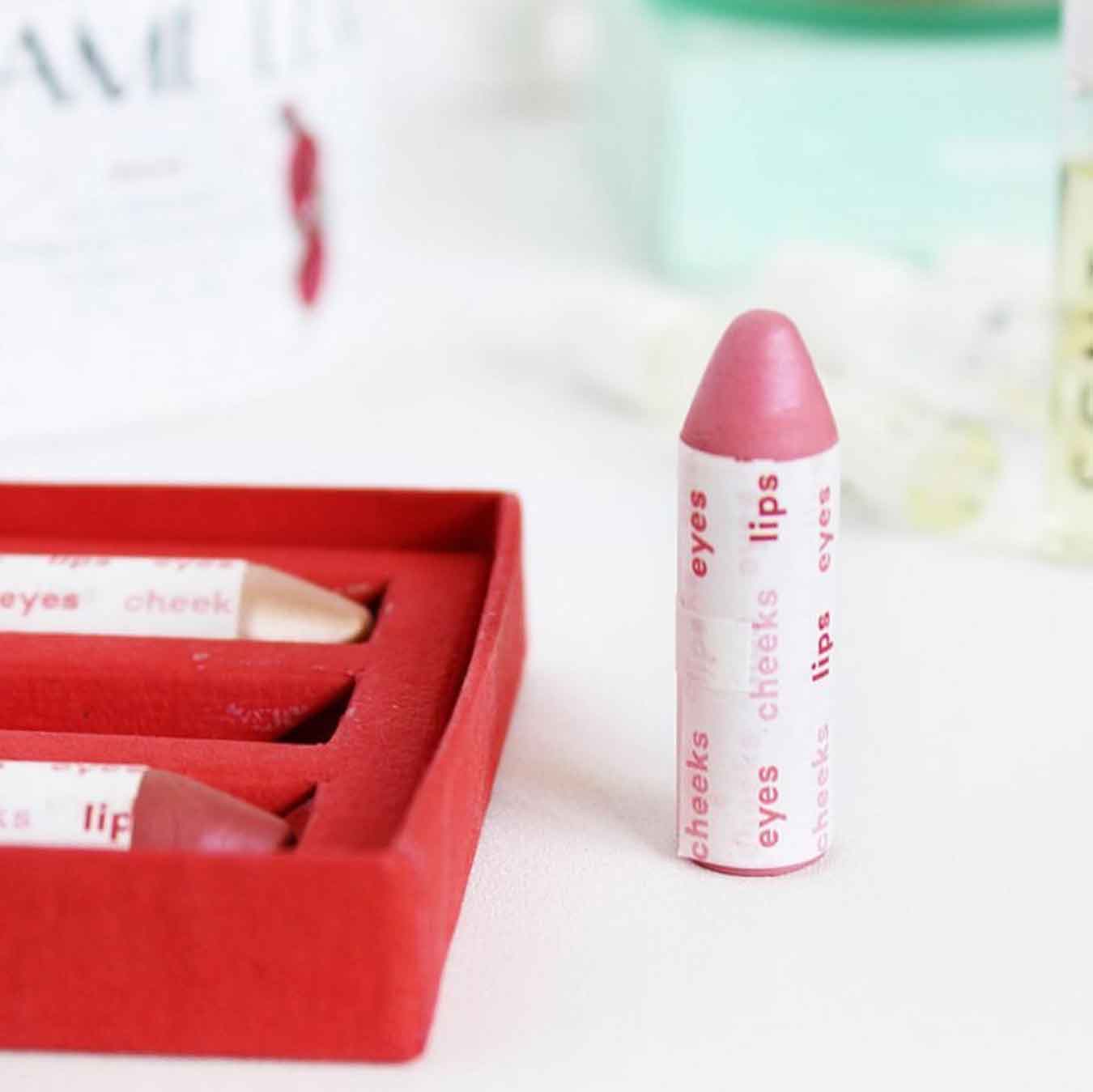
© Axiology
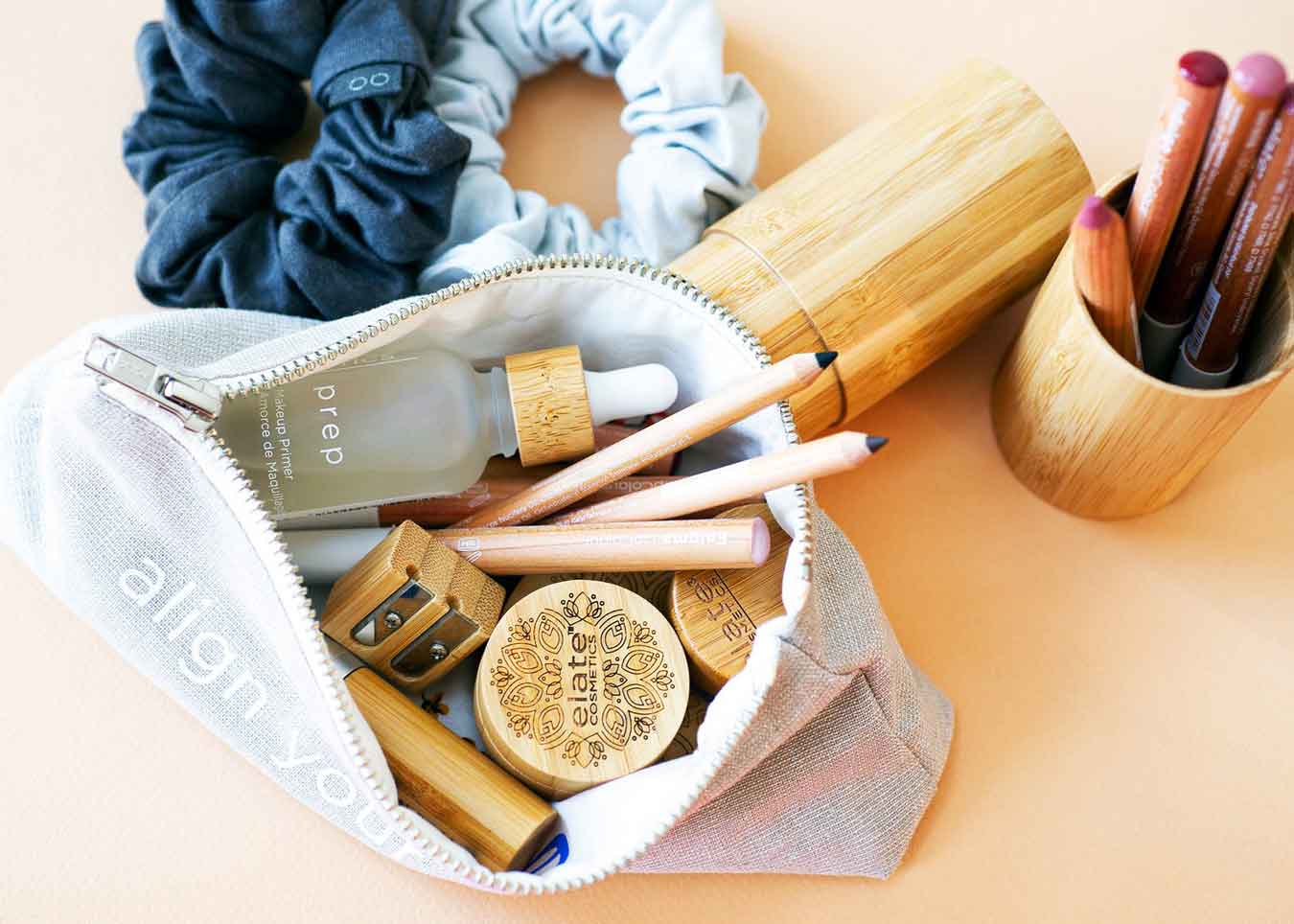
© Elate Cosmetics
ELATE COSMETICS
Elate Cosmetics might just do the best packaging disclosures we’ve seen to date. On every product page there is a “packaging” tab to click on that reveals exactly how to responsibly dispose of every component of that product’s packaging. From simple recycling of glass primer bottles to instructions to crush and remove the bamboo casings around mascara tubes, Elate Cosmetics’ explanations are unfalteringly comprehensive and detailed. Not to mention, loose powder product refills are available in biodegradable cylinders and pressed powder product refills come in seed paper envelopes that can be planted to grow into beautiful wildflowers—what’s not to love?
Frustration with plastic packaging recyclability and disposability has been mounting for years now, and for good reason. Consumer rights organisation Consumers International and the UN’s Environment Programme (UNEP) published a report in May 2020 that found that only 19% of assessed plastic packaging labels were providing consumers with the quality information they need to make informed recycling and purchasing decisions. This has contributed to only 9% of plastic waste actually being recycled globally, while 12% is incinerated and the rest is sent to landfill or leaked into the environment. Fortunately, Consumers International and the UNEP did manage to find a silver lining: “[r]ising public awareness and concern about plastics has encouraged businesses to increasingly communicate […] information about their packaging.” This is clearly demonstrated by the indie brands described above, and with the advent of more and more eco-friendly packaging alternatives, our hope is that even more brands will finally start giving their customers the straightforward answers they need in order to improve the overall sustainability of the industry.
*Header Image by Unwrapped Life

+ Words: Dorice Lee, Luxiders Magazine Contributor
IG: @doricelee

